Speakers
 |
Jake An Research and Development | Raiz Invest Jake An received a PhD and a B.Com (1st Class Honours) in Marketing at UNSW. Since 2016, he has led research and development at Raiz Invest, a fintech company with over 600,000 active customers. As of April 2022, he now works as a lecturer at UTS. His research focuses on enhancing new technologies such as goal enabling technology, social investing technology, and carbon offset program technology using machine learning, statistical modelling, surveys, and field and laboratory experiments to create greater value for individuals, firms and external stakeholders. His works have been published in international peer-reviewed academic journals such as Management Science. His works have been cited in media including AdvisorVoice, Business Think, and Finder. One of his works received the Finalist for Best Communications Campaign in the Australian FinTech Awards 2018. He has taught Digital Marketing at UNSW, and Customer Analytics and CRM at the University of Sydney as a lecturer and unit coordinator, where he received the Dean’s teaching award. |
 |
Xerxes Battiwalla Director (R&D) Software & AI | Bionic Vision Technologies. With over 20 years of experience in software engineering, his experience spans cloud, mobile, desktop and embedded development. At BVT, Xerxes leads the software and artificial intelligence roadmap, bridging the transfer of technology between research and product development, and applies a user-centred design philosophy to bring unique solutions to problems in the clinical, and patient domains. Prior to joining BVT, Xerxes held senior management, product development, and engineering roles at Cochlear, where he had over 10 years of experience developing and commercialising software for medical devices. Outside the office, Xerxes enjoys teaching and mentoring, having taught programming classes at the University of Technology in Sydney, and regularly encourages his children’s interest in STEM. He is an inventor on two US patents for cybersecurity in implantable medical systems, and for clinical outcomes in medical device systems. |
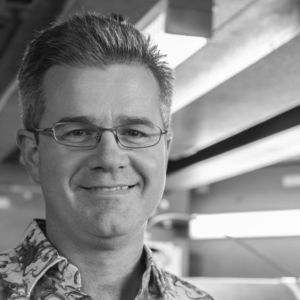 |
Dr Joseph Bevitt Senior Instrument Scientist and Scientific Coordinator | ANSTO Joseph is a Senior Instrument Scientist and Scientific Coordinator at ANSTO’s Australian Centre for Neutron Scattering, where he pioneers the use of neutron imaging across diverse areas of research. Working with an international network of universities and museums, he is a global leader in the application of neutron imaging application to palaeontology and cultural heritage. Joseph has developed a new national commercial capability for high-speed 3D scanning of mining drillcores and other objects for which traditional X-rayCT is not applicable. He is lead scientist for the collaborative MAAS-ANSTO-UNSW exhibit “The Invisible Revealed” which currently showcases the outcomes of these methods and other nuclear methods applied to objects from the MAAS Powerhouse Museum collection. Joseph received a PhD in Chemistry from The University of Sydney, has 15 years’ experience in managing research grant access to ANSTO’s national research infrastructure, including the Australian Synchrotron, neutron beam and National Deuteration Facilities. |
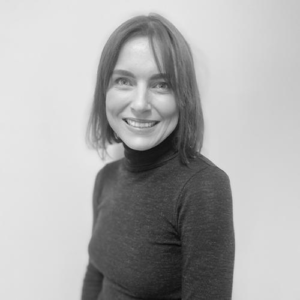 |
Anne-Louise Brown Director of Corporate Affairs and Policy | Cyber Security Cooperative Research Centre Anne-Louise Brown is the Director of Corporate Affairs and Policy at the Cyber Security Cooperative Research Centre. Anne-Louise is a former journalist with a passion for developing innovative and creative public policy solutions in the cyber security space. She is fascinated by the nexus between law, human behaviour and cyber security and how public policy can keep pace with rapidly evolving technology. Leveraging policy ideas that can make a real-world difference is Anne-Louise’s key aim, as is explaining complex concepts in a way accessible to all people. She is co-author of Exfiltrate, encrypt, extort: The global rise of ransomware and Australia’s policy options and Underwritten or oversold? How cyber insurance can hinder (or help) cyber security in Australia. |
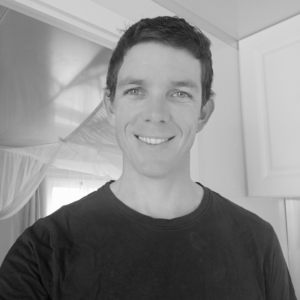 |
Alex Chapman Software Engineering Team Lead | CSIRO’s Data61 Alex Chapman is a software engineering generalist with interests in functional programming, human-computer interaction, content-addressed architectures, and the merger of programming and mathematics. With CSIRO’s Data61 he has worked in regulation technology, data standardisation and now agricultural simulation and modelling. He has previously worked in the private sector on network security, desktop audio editing applications and web development. He is also an enthusiastic paraglider pilot, occasional hobby farmer, confirmed introvert and proud part-time carer for his young daughter Emily. |
 |
Chief Technical Officer | SENETAS CORPORATION LIMITED Julian Fay is Chief Technology Officer (CTO) of Senetas Corporation Limited. He is also a co-founder of Senetas’s leading high-assurance encryption technology, used to protect government, defence and commercial enterprise networks and transmitted data in more than 35 countries. Julian’s responsibilities include product development and working with technology partners, service providers, channel partners and major customers around the world to identify their current and emerging data security needs. With more than 25 years’ IT&T experience and his key role in Senetas’s product planning and R&D, Julian has worked closely with many of the world’s most secure organisations. These include government agencies, defence forces, Cloud, .com and data centre service providers; telecommunications, commercial and infrastructure enterprises. |
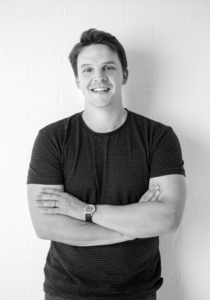 |
Matthew Grace Senior Product Manager | CSIRO’s Data61 Matthew is a Senior Product Manager within CSIRO’s Data61 where he drives the deep technology translation process from R&D to market impact. Currently, Matthew is the strategic product lead for CSIRO’s Reinvent Science program where we works with researchers, designers and engineers across CSIRO’s business units to find opportunities to develop game changing products for researchers, that also have commercial potential. Matthew brings a diverse background of experience in strategy, transformation and change, and portfolio innovation management having worked in multiple industries such as financial services, management consulting, legal and professional services, start-ups and now deep-tech development. Matthew is looking for partners to help accelerate the mission of Reinvent Science within CSIRO. |
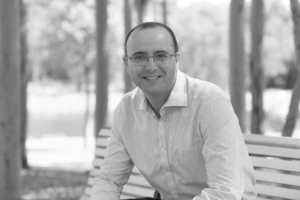 |
Prof. Dali Kaafar Professor | Faculty of Science and Engineering at Macquarie University Executive Director | Macquarie University Cyber Security Hub Dali Kaafar is a Full Professor at the Faculty of Science and Engineering at Macquarie University and the Executive Director of Macquarie University Cyber Security Hub. He is also the founder of the Information Security and Privacy group at CSIRO Data61. Prior to that, Dali was the research leader of the Data Privacy and Mobile systems groups at NICTA and Senior principal researcher at INRIA, the French research institution of computer science and automation. He received his PhD from University of Nice Sophia Antipolis and INRIA in France where he pioneered research in the security of Internet Coordinate Systems. Prof. Kaafar is the associate editor of IEEE Transactions on Information Forensics & Security and serves in the Editorial Board of the Journal on Privacy Enhancing Technologies. He published over 300 scientific peer-reviewed papers with several and repetitive publications in the prestigious IEEE Symposium on Security and Privacy (IEEE S&P), ACM SIGCOMM, WWW, NDSS and PETS. He received several awards including the INRIA Excellence of research National Award and the Andreas Pfitzman award from the Privacy Enhancing Technologies symposium in 2011. In 2019, he has also been awarded the very prestigious and selective Chinese Academy of SciencesPresident’s Professorial fellowship Award. |
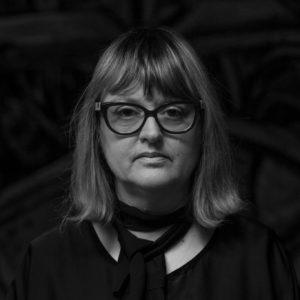 |
Deborah Lawler-Dormer Research Manager | Museum of Applied Arts and Sciences (MAAS) Deborah Lawler-Dormer is Research Manager at Museum of Applied Arts and Sciences (MAAS), Sydney, Australia and a Senior Research Fellow at Institute of Culture and Society, Western Sydney University. At MAAS she has developed a new Research Policy Framework and program that includes research fellowships, Australian Research Council Linkage projects, expert publications, research exhibitions and symposia. She has extensive organisational management, programme management and leadership experience in the gallery and museum industry, through initiating and leading arts, community and education initiatives for more than twenty years. Her experience incorporates a track record of raising and managing significant funds for creative arts and technology programming and academic research and development. She has a deep knowledge of transdisciplinary art, science and technology-based projects accrued through collaborative projects with strong connections to universities, community and industry, including in the field of AI driven technology-based systems. |
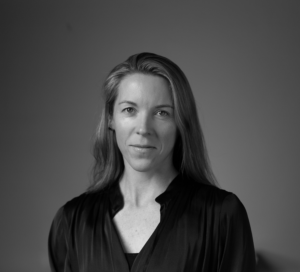 |
Tamara Ogilvie Innovation Connections Facilitator Entrepreneurs’ Programme | CSIRO Tamara Ogilvie supports Australian small & mid-sized enterprises (SMEs) to start or excel their innovation activities and R&D. As Innovation Connections Facilitator with CSIRO SME Connect, Tamara brings her background in SME finance, strategy and operations to help businesses leverage innovation – especially digital technologies, across a range of industries.
|
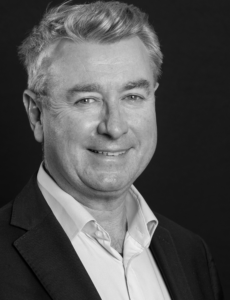 |
Dr. Ian Oppermann NSW Government’s Chief Data Scientist | Department of Customer Service. Dr. Ian Oppermann is the NSW Government’s Chief Data Scientist working within the Department of Customer Service. He is also an Industry Professor at the University of Technology Sydney (UTS). From 2015 to 2019, Ian was also the CEO of the NSW Data Analytics Centre (DAC). Ian is considered a thought leader in the area of the Digital Economy and is a regular speaker on “Big Data”, broadband enabled services and the impact of technology on society. Ian has an MBA from the University of London and a Doctor of Philosophy in Mobile Telecommunications from Sydney University. Ian is a Fellow of the Institute of Engineers Australia, a Fellow of the IEEE, a Fellow of the Australian Academy of Technological Sciences and Engineering, is a Fellow and Immediate Past President of the Australian Computer Society, Fellow of the NSW Royal Society, and a graduate member of the Australian Institute of Company Directors. |
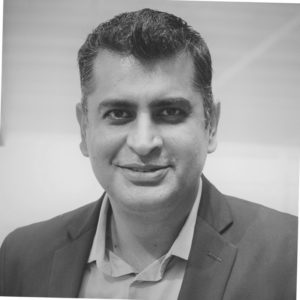 |
Prem Naraindas Founder and CEO | Katonic.ai Prem Naraindas is the founder and CEO of Katonic.ai. Katonic has built a Data Science Platform for the masses that Netflix, Airbnb, Uber, Google, and the big players had been building internally for years. Prem has a vision to create affordable and efficient AI that can help businesses create better processes. His aim is to make available AI tech more available on mass platforms for all businesses and let them use it in the most efficient manner. He is an experienced technology executive and public speaker with over twenty years of experience having enterprise-level accomplishments with a passion to drive customer engagements to successful outcomes from start to finish. Through the course of his career, Prem has led transformational initiatives for clients in areas such as application development and maintenance, business process outsourcing, engineering services, R&D, innovation and infrastructure. Prior to founding Katonic, he served as Global Blockchain Offering Director at DXC Technology and Luxoft and heading Digital Sales for the ANZ region at Tata Consultancy Services.
|
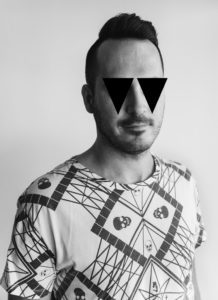 |
Emile Rademeyer Emile’s recognised talent earns international respect and he’s regarded as one of Australia’s most prolific new media creative trailblazers. |
 |
Bill Simpson-Young Chief Executive | Gradient Institute Bill has spent more than 20 years building teams of researchers, software engineers and product designers to develop novel techniques, technologies and products and get these into widespread use. He started as a software engineer and research assistant in machine learning (ML), working on the c4.5 library, one of the world’s first ML technologies used commercially. He has led R&D for global technology companies (Canon and Unisys) and government-funded research institutions (CSIRO and NICTA) and been on the executive teams of three leading Australian science and technology organisations (CiSRA, NICTA and CSIRO’s Data61). Most recently, he has been Director of Engineering and Design at Data61 where he led a team of 100 data scientists, engineers, user experience designers and product managers, developing new techniques, technologies and products. This included work in areas including ML (including ethically-aware ML), data privacy, computational law, geospatial systems and more. He designed and taught a Masters course in IT Innovation at University of Sydney for seven years to 2016 covering topics such as technology life cycles, disruptive innovation, open innovation, open source strategies, organisational culture for innovation and innovation ecosystems. He has sat on several government data-related committees influencing approaches to data sharing, data privacy, data analytics and open data as well as advisory groups at two Australian universities. He has degrees in computer science, history of art and cognitive science. |
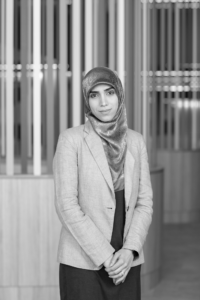 |
Dr Fatemah Vafaee Deputy Director | UNSW Data Science Hub Senior Lecturer | Computational Biology, Bioinformatics Team Leader | AI in Biomedicine Laboratory Dr Vafaee is the Deputy Director and Health Data Science Lead at UNSW Data Science Centre (uDASH), a major strategic initiative aiming to promote foundational and applied research in Data Science in partnership with industry and government. She is also the Founder and Director of a proprietary limited company (OmniOmics.ai) with the mission to develop and deploy Artificial Intelligence (AI) technologies to enhance disease diagnosis and accelerate drug development. Dr Vafaee has received her PhD in Artificial Intelligence from the School of Computer Science at the University of Illinois at Chicago, USA (2011) followed by 2 multidisciplinary postdoctoral fellowships at the University of Toronto, University Health Network on cancer informatics (2011–2012), and at the University of Sydney, Charles Perkins Centre on computational systems medicine (2013–2017). Dr Vafaee has a strong track record of multidisciplinary research leadership and industrial engagement. Her research has attracted over $10.7M across >12 research and industry-based project grants including prestigious schemes of NHMRC Development, ARC Discovery, Medical Research Future Funds (MRFF), and Cooperative Research Centre-Project (CRCP). She has co-authored 40+ publications (68% corresponding author, Field-Weighted Citation Impact:3.08) in prestigious venues. Dr Vafaee has over 15 years of research experience in machine learning and a decade of multidisciplinary research collaboration in medical diagnostics, bioinformatics, and health AI technologies. |
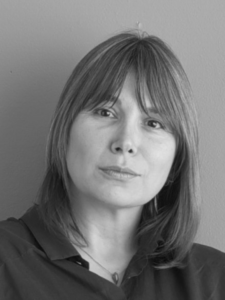 |
Mari Velonaki Founder and director | Creative Robotics Lab Founder and director | National Facility for Human Robot Interaction Research Professor | Social Robotics at the University of New South Wales Mari Velonaki is a Professor of Social Robotics at the University of New South Wales, Sydney. She is the founder and director of the Creative Robotics Lab (Art, Design & Architecture UNSW) and the founder and director of the National Facility for Human Robot Interaction Research (UNSW, USYD, UTS, St Vincent’s Hospital). Mari is a Research Leader at the UNSW Ageing Futures Institute. Professor Velonaki’s research is situated in the multi-disciplinary field of Social Robotics. She holds a PhD in Experimental Interface Design (UNSW 2003). Velonaki began working as a media artist/researcher in the field of responsive environments and interactive interface design in 1997. She pioneered experimental interfaces that incorporate movement, speech, touch, breath, electrostatic charge, artificial vision and robotics, allowing for the development of haptic and immersive relationships between participants and interactive agents. In 2014 she was voted by Robohub – a large robotics community of researchers, educators and business- as one of the world’s 25 women in robotics you need to know about. Mari’s contributions in the areas of Social Robotics, Responsive Systems and Human-Machine Interface Design include:
She is the recipient of several competitive grants and has collaborated extensively with industry partners in Australia, Japan and the United States. Mari’s robots and responsive installations have been exhibited worldwide. |
 |
Viveka Weiley Engineering & Design Leader | CSIRO’s Data61 Viveka Weiley is a technology, design and product leader with a track record of building high-performing teams to take deep technology innovations from invention through to scale, and leading change in organisations ranging from scrappy startups to storied institutions. He has accelerated the development of beloved products with millions of users, led teams that delivered national award winning innovations driving high-growth new business models, and shipped one chart-topping augmented reality app. At CSIRO’s Data61 Viveka leads a team of inventors working to reinvent science through engineering and design in collaboration with scientists from across the organisation. He has previously worked on CSIRO projects in interactive geovisualisation, human/AI interfaces for spatial and multi-criteria decision support, assistive and augmenting technologies and virtual, augmented and mixed reality (VR/AR/MR/XR) for collaboration and remote guidance. Viveka holds a B. Design from UNSW and a B. Sc (hons) IT with first class honours by research and the university medal from UTS. He was a founding member of the Australian Government’s Consumer Data Right Advisory Committee and serves on the Advisory Board to the UTS School of Software. |
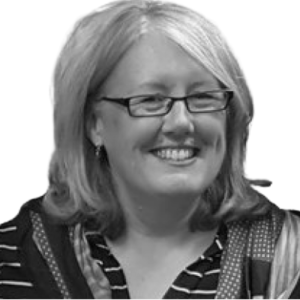 |
Professor Mary-Anne Williams
Michael J Crouch Chair in Innovation | UNSW Business School
Professor Mary-Anne Williams is the Michael J Crouch Chair in Innovation at UNSW where she collaborates to grow entrepreneurship and accelerate innovative thinking in Australia. Mary-Anne has a PhD in Computer Science (University of Sydney) and a Master of Laws (University of Edinburgh). Mary-Anne is a leading authority on AI and Robotics for Business and Innovation. Mary-Anne has won multiple awards including the 2019 Australasian Distinguished Artificial Intelligence Contribution Award, Google Faculty Awards in 2019 and 2021, and an IBM Faculty Award. She is the first Australian invited to serve as Review Editor of the prestigious Artificial Intelligence Journal and the first to be invited to serve on the ACM Eugene L. Lawler Award Committee for Humanitarian Contributions within Computer Science and Informatics.
In 2022 Mary-Anne is a judge for the Americal Chamber of Commerce AI Awards. She is a Fellow at Stanford University, the Australian Academy of Technology and Engineering (ATSE), the Australian Computer Society, and the International Association for the Advancement of Artificial Intelligence (AAAI). Mary-Anne is the founder and director of the UNSW Business AI Lab. This lab focuses on accelerating business adoption of AI and building new capabilities that drive innovation and digital transfomation for government, corporates, SMEs, startups and scaleups. Industry partners include CBA, South Western Sydney Local Health District (SWSLHD), IBM, Google, Disrupt, Linkedin, Willow Garage (now Savioke), Amazon, Visual Risk, Denmark’s National Bank, EY, Samsung, Sony, Softbank, Roche, AirTee Ventures, X15 Ventures, Climate Salad, and the United Nations.
|
 |
Dr. Maggie Zhang Senior Deep Learning Engineer | NVIDIA Talk abstract: Accelerating AI applications demands great computational resources when datasets increase in size and models in complexity. This talk will introduce NVIDIA’s latest Ampere architecture and AI software stack to help you maximize the performance of your AI workloads on GPUs. NVIDIA AI software stack includes libraries, deep learning frameworks optimized for GPUs, and multiple tools for deep learning training and inference, to help you get the most out of GPUs. We will also share some customer stories to show you how they successfully accelerated their AI workloads in different domains using GPUs. Bio: Maggie Xuemeng Zhang is a deep learning engineer at NVIDIA, where she works on deep learning applications including computer vision and natural language processing, as well as deep learning frameworks on GPUs. She received her PhD in computer science and engineering from the University of New South Wales, where she worked on GPU/CPU heterogeneous computing and compiler optimizations. |
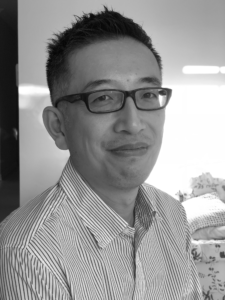 |
Dr Liming Zhu Research Director Software & Computational Systems | Data61’s CSIRO Dr Liming Zhu is a Research Director at CSIRO’s Data61 and a conjoint full professor at University of New South Wales (UNSW). He is the chairperson of Standards Australia’s blockchain and distributed ledger committee and on AI trustworthiness related committees. His research program innovates in the areas of AI/ML platforms, responsible/ethical AI, software engineering, computational science, blockchain, regulation technology, quantum software, privacy and cybersecurity. He has published more than 200 academic papers on software architecture, secure systems and data/ML infrastructure, blockchain, governance and responsible AI. |
|
|
